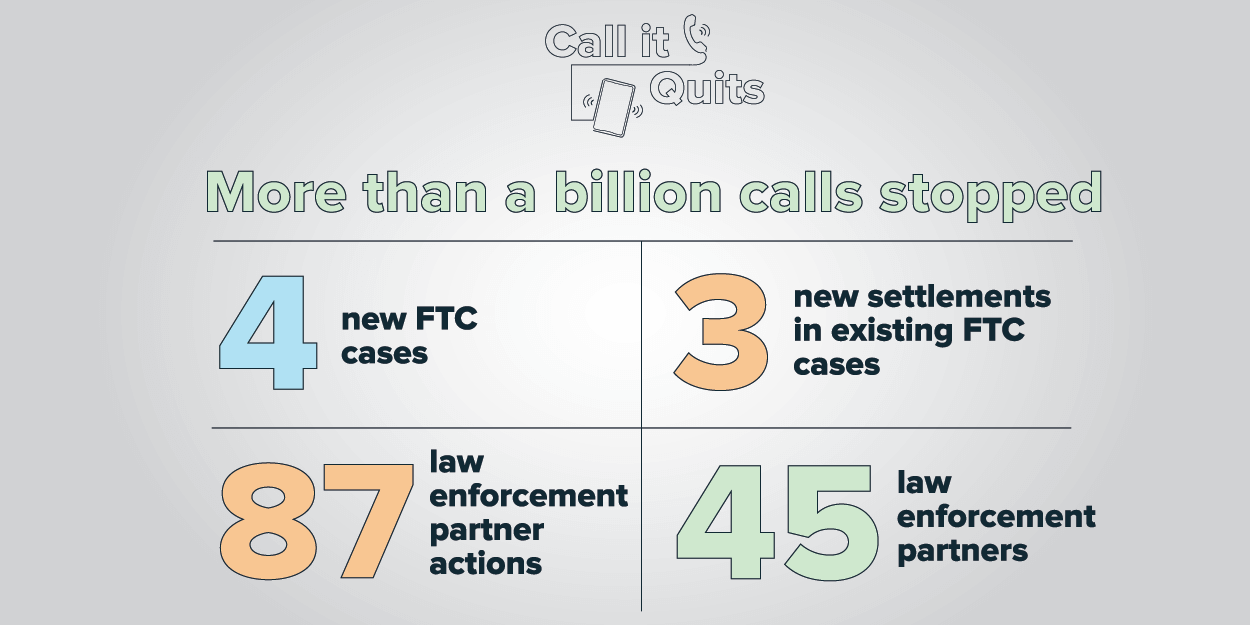In brief: The war on spam telephone calls is heating up. The FTC has begun stepping up efforts to nail illegal telemarketing schemes to the wall. It recently filed just under 100 legal actions against organizations that have made more than a billion scam calls.
The Federal Trade Commission (FTC) has begun taking action against robocalls in earnest. In a press release issued today, the FTC says it has filed 94 law enforcement actions against companies that are responsible for over one billion illegal calls.
The commission calls the renewed effort "Operation Call It Quits." Including four new legal cases and three settlements, the FTC has brought 145 cases against robocalling outfits. Most of the organizations claim to offer to lower credit card interest rates, money-making opportunities, and medical alert systems.
The commission listed several examples that it has filed claims against. First Choice Horizon offers to lower credit card interest to zero for the life of the debt. It favored contacting senior citizens and allegedly tricked them into giving up their personal information, including social security and credit card numbers.

The FTC has also taken action against individuals. Derek Jason Bartoli, for example, has allegedly been working in the illegal telemarketing industry for several years providing "dialer" and IT services. In the last six months of 2017 alone, the FTC claims his auto-dialing system made 57 million calls, millions of which used spoofed caller ID information.
To round up these culprits, the commission has partnered with 45 law enforcement agencies at the federal, state, and local levels. Agencies and attorneys general from more than 15 states have signed on to the initiative. Partners have been responsible for the bulk of the recent actions.
"Every year, our office gets more consumer complaints about unwanted robocalls than just about any other issue," said Curtis Hill, attorney general for Indiana. "At best, these calls represent a nuisance for families just wanting to enjoy peace and privacy without needless disturbances interrupting their routines. At worst, they represent scams that successfully steal people's identities or hard-earned money."
The crackdown follows recent calls for legislation in the House and Senate, and a push for stronger enforcement from the Federal Communication Commission.
If you're interested in the details of the individual actions, the FTC has them listed in its press release.
